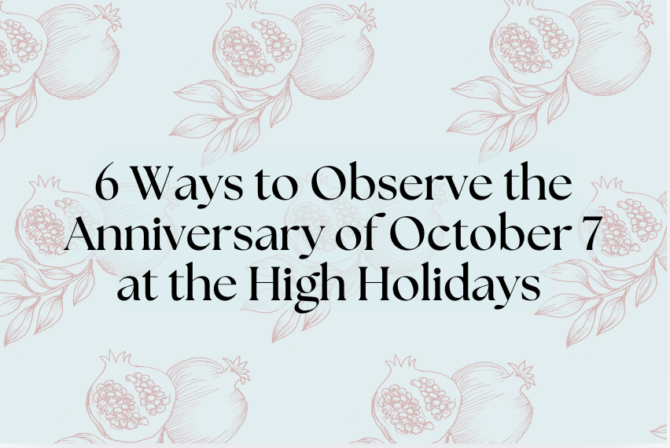This year, my husband and I are skipping the seder.
My father, a rabbi, has been very understanding. “You’ll be hosting your very own exodus, at none other than Mount Sinai!” he exclaimed, referring to the pending birth of our babies (not a typo, we’re having twins) who will be delivered at the aptly named Mount Sinai Medical Center in Manhattan. (This was a very generous reaction from a man who takes tradition seriously; I’m certain that nothing short of the promise of
two more
grandchildren
could have made our absence from the seder acceptable.)
It wasn’t supposed to be this way. My doctors moved my due date, originally estimated for May 2, up two weeks. They say twins are better off outside the womb after 38 weeks. Our plans for a May baby who would arrive neatly with the end of the semester at the college where I teach, were thwarted by the fact that one baby was really two. Further complicating things, one of our babies remains stubbornly breech, its head lodged just below my diaphragm, its legs kicking my nether-regions endlessly. So, a mid-April C-section it is.
Perhaps in other cities scheduling a C-section during Passover week would be no big deal. But in New York City, when you are a patient at an obstetrics practice where the hallways are lined with Jewish Prayers for the Physician and thank you cards from patients whose children wear side curls and husbands wear black hats, this poses a logistical challenge. The doctors we liked best plan to be with their families for the first two days of the holiday, and a delivery scheduled for much beyond the Wednesday following the seders would put me too far along at 38.5 weeks. All signs pointed to a due date of mid-Passover.
We carefully considered our seder-ing options, because the idea of skipping out felt wrong. In this bizarre universe that is the tail-end of pregnancy, where nothing seems real and its all I can do to remind myself that the constant kicks I feel are actually caused by human babies inside my belly, I found it a risky proposition to write the holiday off entirely. I needed some sense of normalcy before everything became the opposite.
And, I love Passover. I love the smell of spring mixed with brisket in my parents’ kitchen, the gathering of relatives and friends, the compilation of corny songs my parents provide at the seder, the matzah ball soup, the chance to shake off winter, the rallying cry of
next year in Jerusalem
.
Still, sitting upright (because who really reclines?) at a lovely but long and constipating meal the night before I undergo abdominal surgery and then become a mother for the first time to two infants, simultaneously, didn’t seem like the best plan.
Here’s what we’ve decided: while there’s no chance of us cooking and preparing a seder for two, there are other, non-traditional things we can do in this week leading up to Passover that will help us mark the holiday.
This weekend, we spent an afternoon in the garden behind our apartment. We swept leaves, planted grass seeds and pruned the bushes. Then we moved indoors and cleaned out a closet. (I’ve found that my pregnancy nesting instinct coincides nicely with removing hametz [off-limits bread products] from our home.) Although not regular synagogue-goers, we’ve decided to try and attend a Shabbat service this weekend, and if I can muster the stamina, I will bake the one kosher-for-Passover item I know how to: chocolate chip mandel bread. We also plan to sit down together for a (take-out) meal on Monday and Tuesday nights and chat about our hopes for future Jewish holiday family rituals.
Maybe none of these activities has much to do with the conventional meaning of Passover, but this holiday is so special it has four other names—two of which seem particularly apropos of our Passover plans: Chag Ha’Aviv (Festival of Spring) and Zman Cheruteinu (the time of our freedom). We are indeed marking spring; there seems no better way to acknowledge the season of blooming flowers and warm weather than by bringing new life into the world. And this is also the time of our (last bits of) freedom—although perhaps short-lived—we plan to make the most of it somehow.







